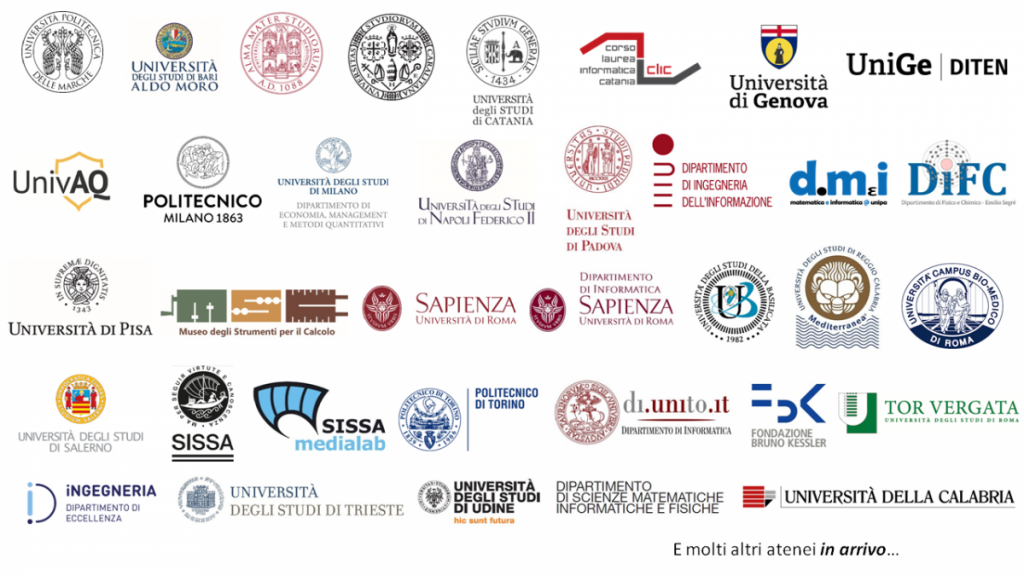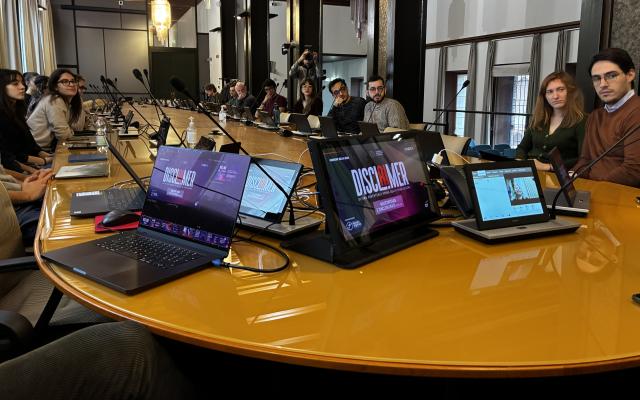For the European Night of Researchers, as part of the Coding Girls Programme, on Friday, November 27, 13 women in science (university professors, researchers, PhD students, etc.) will host talks to present scientific research to the new generations. The appointment is from 5-6 pm on the Microsoft Teams Platform.
One month after the launch of the seventh edition of Coding Girls [see news: A Gentle Revolution], here is the first result of the collaboration amongst a network of 32 academic partners. Speakers include Sara Leonetti and founder of Next, a non-profit association working on digital culture and technology, and a new node in the collaborative networks for gender equality.
Here is a quick presentation of the 13 women in science acting as role models (click on the name to access the on-line session):
- Micol Spitale, “Politecnico di Milano” University
Strongly believing that individual change can have a great effect on the world, the talk will concentrate on the so-called ripple effect, a domino effect that takes place when an initial action in a system propagates outwards influencing an increasingly larger portion of the system. The objective is to inspire young men and women to “be the change they want to see in the world” (Mahatma Gandhi). - Veronica Bartolucci, “Politecnica delle Marche” University
The world of robotics is continuously evolving. Robotic devices helping humans on environmental issues represent safer and efficient action. - Lucia Migliorelli, “Politecnica delle Marche” University
The presentation will range from the application of artificial intelligence, which we have all used at least once during our lives without knowing it, to the experience of the research group with the analysis of images for clinical practice. - Alessia Palleschi, Sapienza University of Rome
In an increasingly connected and digital world, we need to understand how to face new challenges. Technology must be understood and not feared. The DIAG Department at Sapienza University of Rome will introduce you to this world full of challenges and new experiences. It will be a fulfilling experience, women, too. - Gabriella Casalino, “Aldo Moro” University of Bari
The idea of “intelligent” machines arose before the development of personal computers. This talk will address the discovery of artificial intelligence. How can we make inanimate objects intelligent? Then we will address the intelligent systems that we use daily and the research activities conducted by our Computer Science Department. - Antonina Dattolo, University of Udine
How is a research lab created? What ideas and projects bring it to life? What important role do students play? The presentation will review the birth of the SASWEB Research Lab during the European Night of Researchers 2011 and what it means to conduct research. - Maritina Urizio, University of Udine
The objective of this seminar is to present the experience of research at the University of Udine SASWEB Lab for Project AppInventory. The collaboration on development, the sharing of results, what it means for the entire academic community and the world of schools. - Sara Leonetti, Next OdV
The Covid-19 Emergency has exponentially driven on-line sales. E-commerce has been around for nearly 30 years and it will blossom further in the future. What is e-commerce and what figures are involved? I will tell you about my experience at Conad, Crif and Sixty. - Fabiola De Marco, University of Salerno
In recent decades, the role of women has significantly soared in the world of computer science and addressed issues that had always remained untouched. In this period, the scientific community needs to grow and become more heterogeneous to guarantee a future to all citizens and a profound faith in research. - Manuela Chessa, University of Genoa
Virtual and augmented reality have been the object of studies for years. Recently, new technology has led to the development of systems and solutions that can be applied to a variety of fields: medicine, rehabilitation, education and industry, as well entertainment and videogames. Perception and cognition are fundamental for new virtual and augmented reality technology to be used efficiently as a means of overcoming distance, to promote learning and improve the interaction between human beings and machines. - Francesca Cordero, University of Turin
Is it possible to predict the evolution of a disease? Can we understand what the best therapy is for each patient? Can we evaluate different scenarios to predict the evolution of a pandemic and understand what we should do to face and block it? Interdisciplinary studies are key to provide greater innovation to research. For example, bioinformatics provides us with new knowledge on complex life systems, overcoming experimental limits thanks to computational simulations that allow us to explore new frontiers. - Irene Cannistraci, Sapienza University of Rome
- Chiara Fanali, “Campus Bio-Medico” University of Rome

Coding Girls Press Kit
- Press Note
- Agenda
- Coding Girls Association
- Coding Girls Project Profile
- Universities, Regions, Cities
- CO.ME Project Profile
- Coding Girls in Turin Project Profile
- Factsheet on the Gender Divide


Foto in anteprima di Michal Jarmoluk da Pixabay



